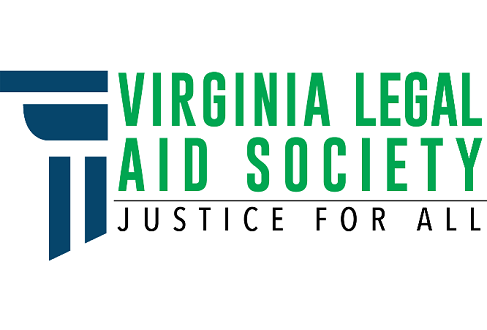To celebrate our 40th anniversary, Virginia Legal Aid Society is telling 40 stories that reflect our history, our people and the cases and events that have made the past 40 years so memorable.
You might think that the lives of Carol and Alan Gravitt were set on parallel courses from the start.
They were high school sweethearts in Halifax, married in 1972, graduated from the same college and law school (University of Virginia for both) and have been partners in the same law firm since they opened it in 1983. Both also have been among the most dedicated and impactful pro bono attorneys for Virginia Legal Aid Society.
But fate did help just a bit to nudge them together – twice. The first was the University of Virginia’s decision to accept female students, allowing Carol to transfer after her freshman year at University of North Carolina-Greensboro.
The second was a summer volunteer project during their grad school days. Carol had earned a master’s degree in psychology and planned to continue on to get her doctorate. Alan went straight to law school. They spent the summer volunteering for the Charlottesville Legal Aid Society.
One summer was all it took. Carol was hooked. “I liked what he was doing better than I liked what I was doing,” she said. She switched to law school.
When they graduated and passed the Virginia bar exam in the late 1970s, legal aid offices were opening and thriving throughout and beyond Virginia, boosted by Congress’ 1974 decision to create Legal Services Corporation, a company to fund such programs. They both loved legal aid work, and eventually both became staff attorneys for Legal Aid Society of Roanoke Valley. (Alan was in private practice for a year before joining Carol.)
“Both were exceptionally competent, conscientious, imaginative and aggressive advocates who believed in their clients and the justice of the cause,” said Henry L. Woodward, Senior Attorney with Legal Aid Society of Roanoke Valley.
The years in Roanoke were “a great learning ground,” Alan said. “You got into court immediately, and you could do the impact cases.” At the time, legal aid societies that accepted funds from Legal Services Corporation were allowed to pursue class action cases.
The Gravitts were part of several important initiatives from Legal Aid Society of Roanoke Valley. They challenged Roanoke County Public Schools’ provisions for cognitively challenged students, which included bus rides of up to 90 minutes both ways to a school that isolated them and wouldn’t provide basic programs such as physical education.
They sued a Christian school for not awarding a diploma to a student for disciplinary reasons, saying the school hadn’t provided due process and fair hearings for the student. They sued a finance company that operated as a joint venture with a local car dealership for charging usurious interest rates.
They challenged the local Division of Public Utilities to adjust its rules to be fairer to customers in cases in which a utility wanted to cut off service.
“We were able to do the right thing,” Alan said. “You didn’t have to worry about the dollars.” Since they weren’t collecting client fees, they could choose their cases based on community impact.
But they soon would have to worry about the dollars. President Reagan, who had opposed public funding for legal aid societies during his days as California’s governor, proposed ending support for Legal Services Corporation. The end result, after negotiations with Congress, was a 25 percent cut in funding for 1982, leading to layoffs at legal aid societies throughout the country.
Carol and Alan took stock. They loved legal aid work, but they also saw that one or both of them might lose their job to the budget cuts. “We considered it a push out of the nest,” Carol said.
In part II, the Gravitts build their successful law practice but never stop contributing to their community.



